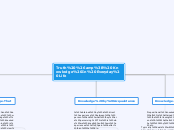Truth & Knowledge In Everyday Life
Knowledge-That
Is propositional and declarative knowledge, which is knowledge of fact or truth. Knowledge that something is truly the case is identified by the view that knowledge is justified true belief.
An example of declarative knowledge is that the sun will certainly rise tomorrow morning because the Earth is in orbit of the sun. This is common declared knowledge that explains the physics of gravity on Earth.
Another example is the fact that blood is red, it is a common mistake to believe that your blood is blue on the inside and turns red after you are wounded. This is because the colour of your skin makes your veins look a greenish blue and this is why knowledge by acquaintance isn't a good source for learning the truth.
Knowledge by Acquaintance
Is obtained by a direct experience between a person and what they are perceiving. This is why we know our own experiences of pain better than the bio-chemical structure of our brains.
There is considerable controversy among philosophers whether Knowledge by Acquaintance offers a stronger perspective on one's knowledge than other kinds of knowledge.
We have knowledge by acquaintance when we are directly aware of something. For Example: If you've never seen the colour Blue, you wouldn't be able to describe it because you would have to experience seeing it to be directly aware of what it looks like.
Knowledge-Wh
Propositional knowledge that is attained by the following questions: Whether, Who, Why, What etc.
Typically deals with therapy and mental health which knowledge is gathered from patients who are asked questions either about their mental state or past trauma.
Knowledge-How
Knowledge of how to accomplish or do something that requires skills or abilities. For Example: Gymnastics, Sports, Reading etc.
Being a good singer takes years of practise and lessons and contrary to common belief you are not born with a singing talent.
